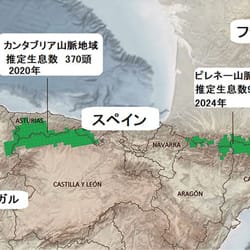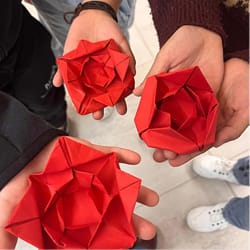‘China plate’ means friend in Cockney English and Cockney English is the London’s dialect.
Cockney English is a way of speaking, a rhyming slang and it’s originally from London's East End.
The word slang itself originated as an abbreviation of Secret Language.
As the saying goes “…when in Rome, do as the Romans do”, so if you go to London, you have to talk like Londoners, and the Londoners, the few authentic ones left at least, speak Cockney English.
Decades ago and in the past centuries, it used to be the slang of the working class, the language of the poor, the rejects, the hated ones but, nowadays, Cockney English is getting back in fashion among the stars of the British jet-set and it’s also a trend among the youngsters in the city.

A view of modern London
At the beginning, the word ‘cockney’ was indeed used as a derogatory term against the popular class of the city (blue collars, urban peasants, builders).
Later on, the word became the term to designate their particular accent and, much later, it became the name of the dialect it is today. The term Cockney or ‘cock's egg’, however, is thought to have originated in the fourteenth century.
Tradition says that only those born in the area around St. Mary Le Bow (a church built in the 17th century and one of the many churches built after the Great Fire) within a distance they could hear the sound of its bells, were true Londoners or Cockneys.
First of all, speaking Cockney is not very easy: you have to commit yourself.
The first step is to avoid pronouncing the ‘t’ and replacing it with a guttural sound is a good start.
Then it is imperative to forget the ‘h’ at the beginning of the words: they should never be pronounced.
It is also important to mention that ‘l’s at the end of the words becomes ‘u’s, and that the ‘th’ sound becomes a ‘v’.
Here it’s a useful list of words and idioms to master it, at least a little bit, my dear ‘China plates!’
Adam & Eve
Cockney expression used to say believe.
Boat race
Cockney expression used for face
Bread & honey
Word for money
It’s easy to guess that Cockney English words were created from funny rhymes.
This language was a sort of code based on a curious way of communication invented by the less wealthy social classes of the English capital to be able to speak in the presence of the police without the latter being able to understand the meaning of their words.
Many other words are the examples of this: ‘China plate’ for mate (friend), ‘fireman’s hose’ for nose, ‘elephant’s trunk’ for drunk, ‘north and south’ for mouth, and so on.
As you can see below, these words are easily placed in a sentence (and, believe it or not, they have meaning and you’ll be understood if you use them!)

“It’s better to have Bread & Honey in London!”
Dog & bone
It means telephone
Example: ‘He`s on the dog and bone’ stands for ‘he is on the phone’.
Pen & ink
It’s used for the verb ‘to stink’.
Example: ‘What a pen and ink!’ means ‘What a smell!’
or ‘That dog of yours pen and inks.’ means ‘Your dog stinks.’
Plates of meat
It’s a Cockney expression used for feet
‘Me (my) plates are killing me.’ is ‘My feet hurt.’
Have fun trying to speak Cockney next time you visit London!






























































